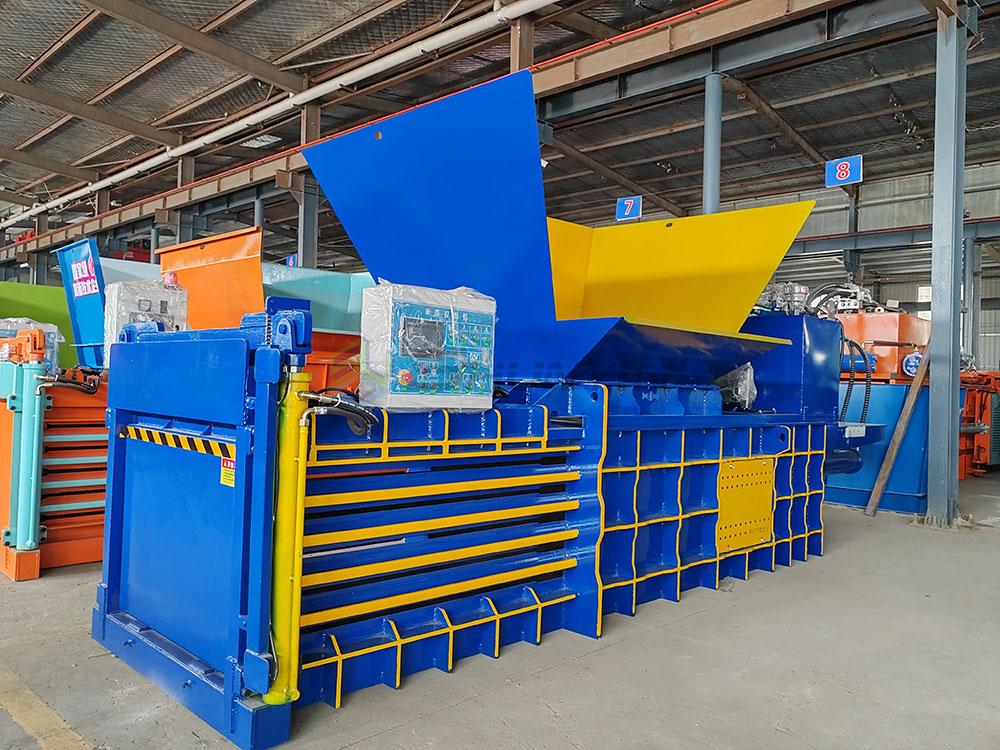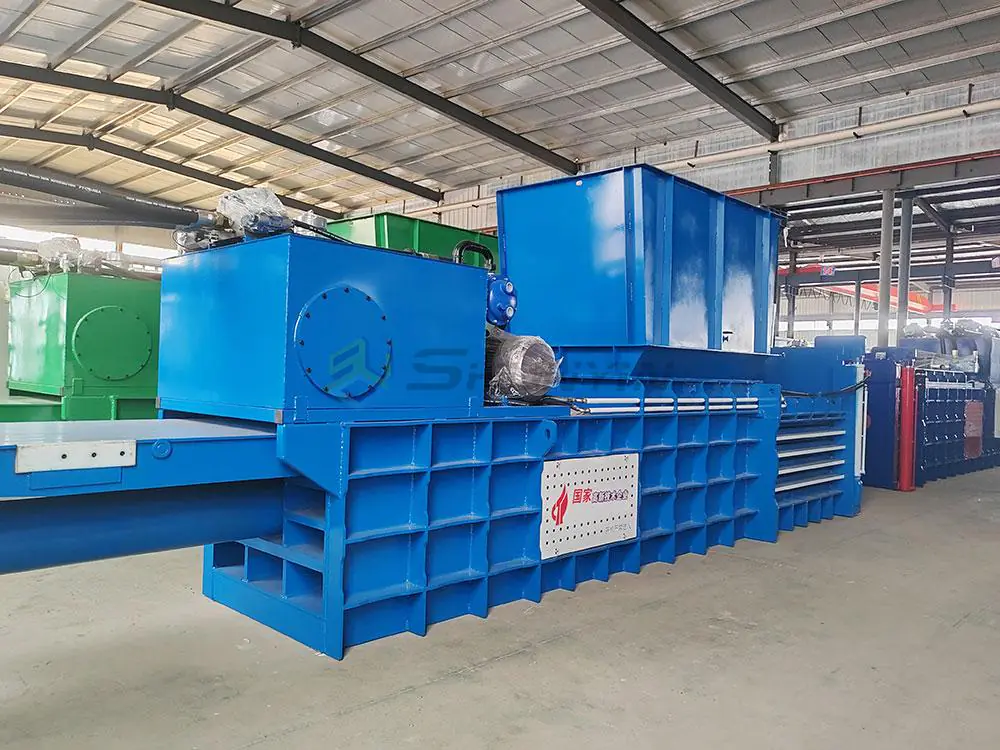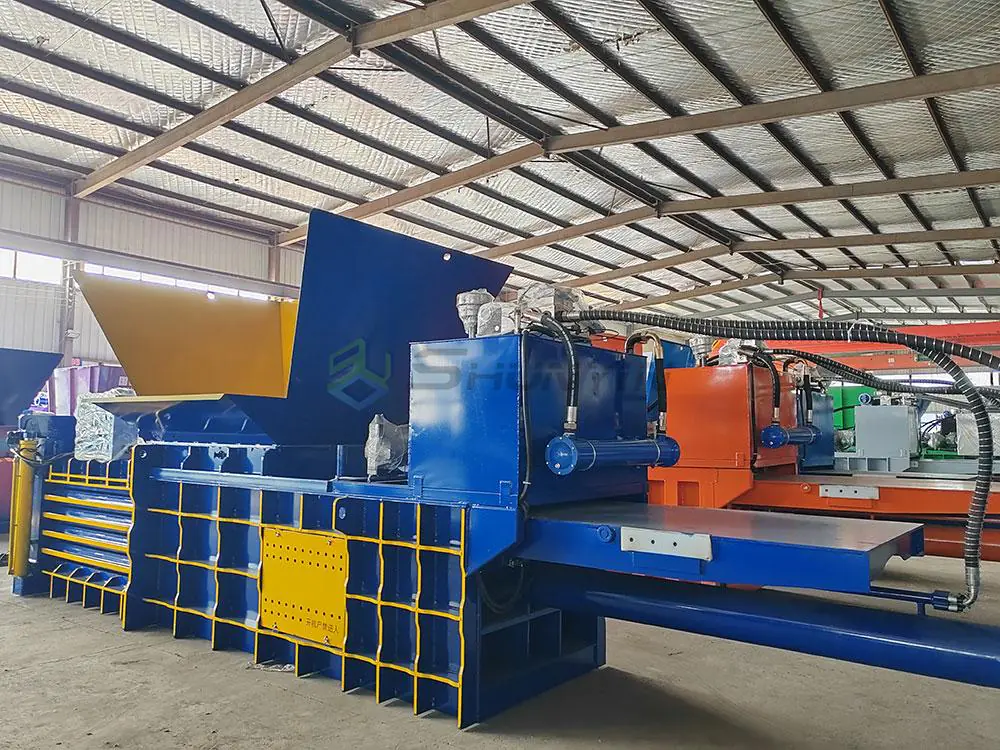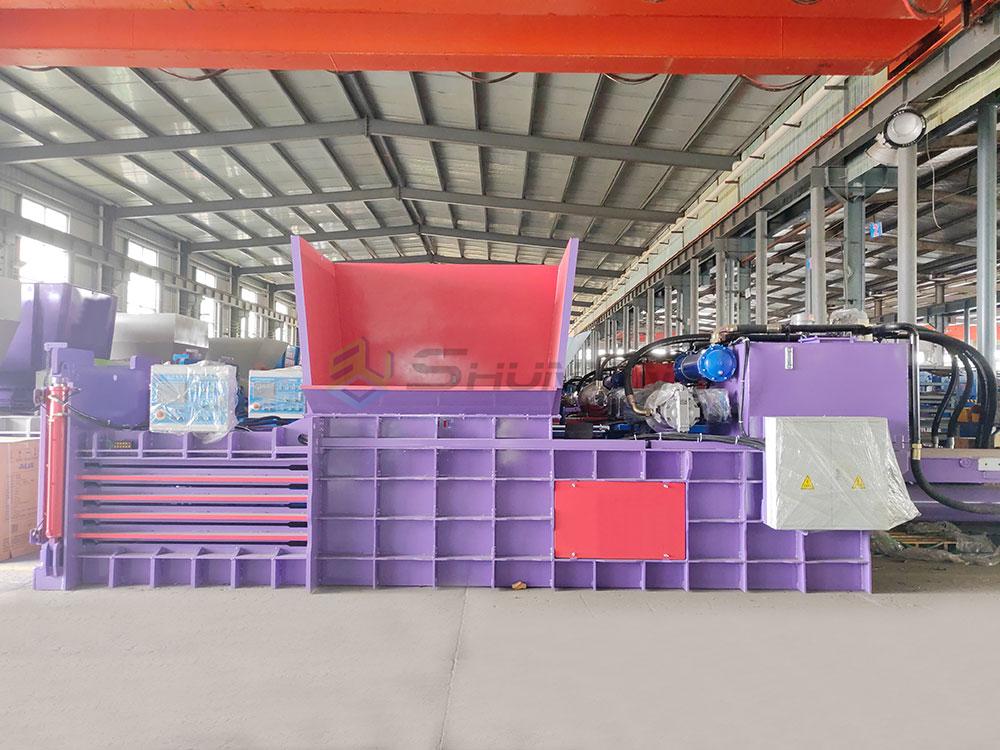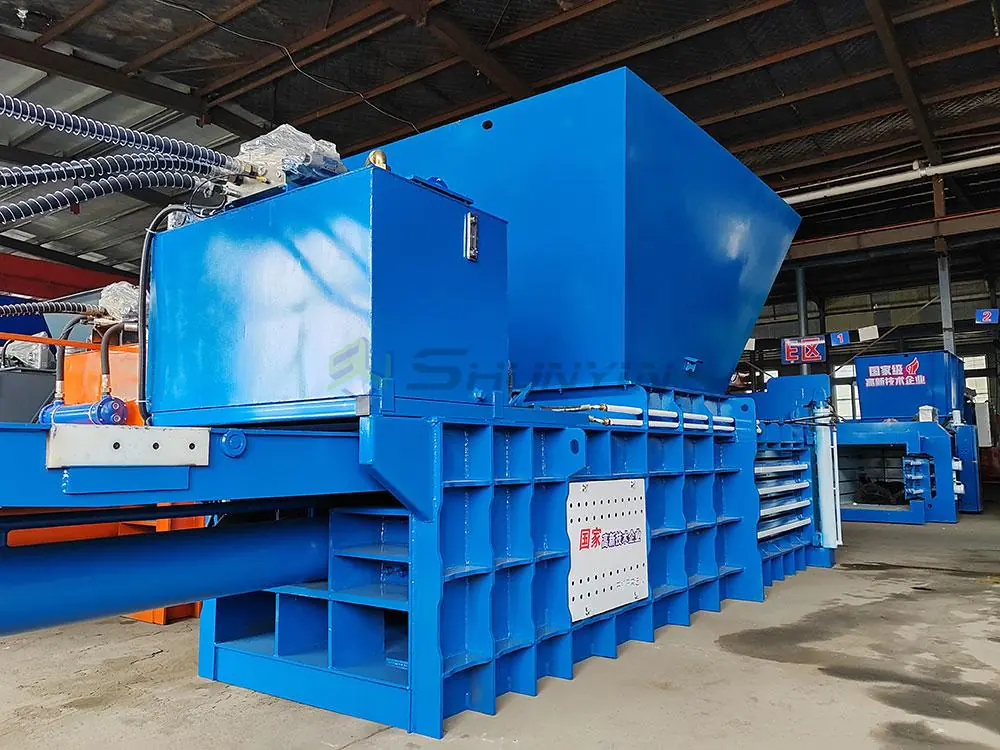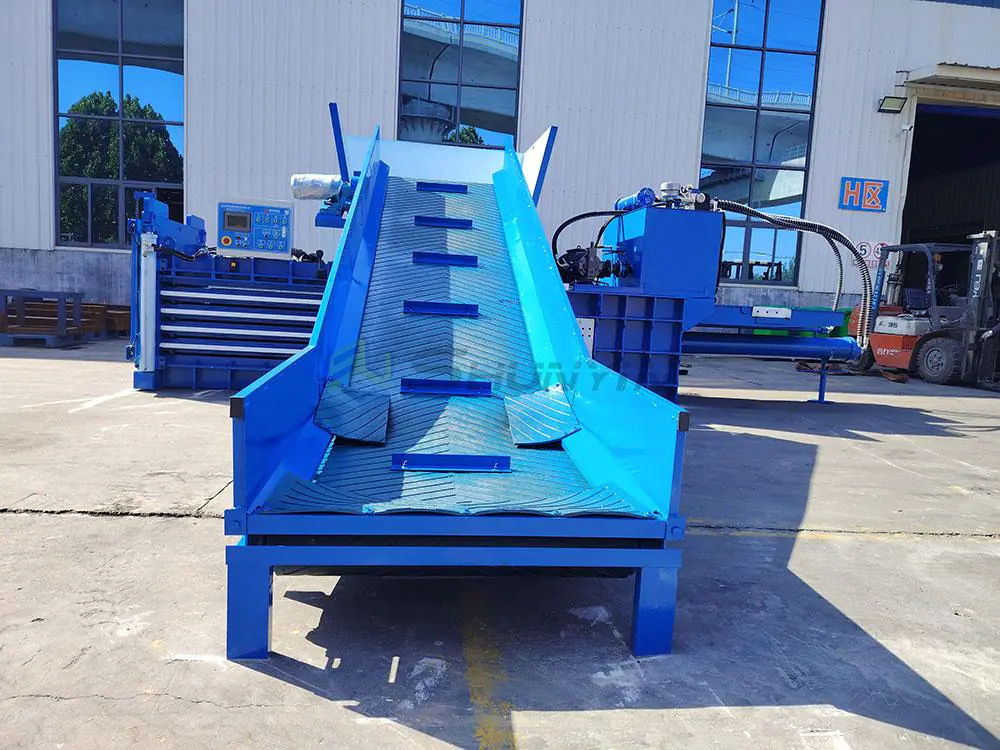
When selecting a cardboard baler for your business, it’s important to understand the costs, manufacturers, and key features of the equipment. Cardboard balers are essential for efficient waste management, especially in businesses that generate large amounts of cardboard waste.
Here are some leading cardboard baler manufacturers1 offering high-quality solutions for recycling:
1. Jining Shunyin Machinery 2
- Known for customized cardboard balers, Shunyin is trusted globally for its low-maintenance, durable machines.
2. Marathon Equipment
- Marathon offers automated and semi-automated balers with energy-saving features, plus customization options.
3. Ver-Tech
- Ver-Tech is recognized for high-quality balers suited for bulk waste handling and large-scale recycling, providing powerful compression.
4. C&M Machinery
- C&M specializes in reliable, low-maintenance balers, available in both manual and automatic models.
5. Advance Hydrau-Tech
- Based in India, Advance Hydrau-Tech provides high-efficiency balers for global markets, with a focus on environmental recycling.
6. Baler Solutions
- Offers customized balers with excellent after-sales support for businesses needing reliable, long-term equipment.
7. SINobaler
- SINobaler provides cost-effective, automated balers, ideal for small to medium-sized businesses in emerging markets.
8. Harris Waste Management Group
- Harris has years of experience producing horizontal and vertical balers, widely used in recycling centers.
Choosing the right baler for your needs is essential to optimize waste processing. Let’s dive into the details about the cost of cardboard balers, manufacturers, and their important features.
What does a cardboard baler cost?
The cost of a cardboard baler can range widely depending on the type, size, and capacity. Basic models for small-scale operations can cost as little as $4,000, while larger, more advanced balers can cost upwards of $60,000.
Cardboard balers come in a variety of price ranges, with smaller vertical balers being more affordable and larger, fully automated horizontal balers carrying a premium price.

Factors Affecting Baler Cost
- Size and Capacity – Larger machines designed for high-volume processing will naturally cost more.
- Automation Features – Fully automated balers with advanced features such as auto tie-off systems are more expensive.
- Brand and Manufacturer – Well-known brands often come with a higher price tag, but they offer quality and reliability.
| Type of Baler | Price Range |
|---|---|
| Vertical Baler | $4,000 – $10,000 |
| Semi-Automatic Baler | $10,000 – $25,000 |
| Fully-Automatic Horizontal Baler | $25,000 – $60,000 |
The cost of a baler should be considered against the potential savings in space, labor, and transportation costs it can provide for your business.
Who makes balers?
Many well-known manufacturers produce balers for different industries. These manufacturers provide machines designed for various types of waste, including cardboard, plastic, and metal.
Prominent cardboard baler manufacturers include companies such as Sulo, Marathon Equipment, and Harris Waste Management Group, each offering different types and models suitable for various business needs.

Top Cardboard Baler Manufacturers
- Sulo – Known for producing compact, cost-effective vertical balers, ideal for small to medium businesses.
- Marathon Equipment – Offers a range of balers, from basic models to fully automated machines for high-volume processing.
- Harris Waste Management – Specializes in horizontal balers with advanced features and high throughput, suited for large-scale operations.
| Manufacturer | Type of Baler | Best Suited For |
|---|---|---|
| Sulo | Vertical Baler | Small to medium businesses |
| Marathon Equipment | Vertical and Horizontal Baler | Businesses of all sizes |
| Harris Waste Management | Horizontal Baler | High-volume waste processing |
Choosing a reputable manufacturer ensures that you get a reliable and efficient baler suited to your business needs.
What is the difference between a bailer and a baler?
The terms “bailer” and “baler” are often confused, but they refer to two different pieces of equipment. While they sound similar, their functions are distinct.
A "baler" is a machine used to compress waste into bales, while a "bailer" is an older term used in agriculture to gather materials like hay.
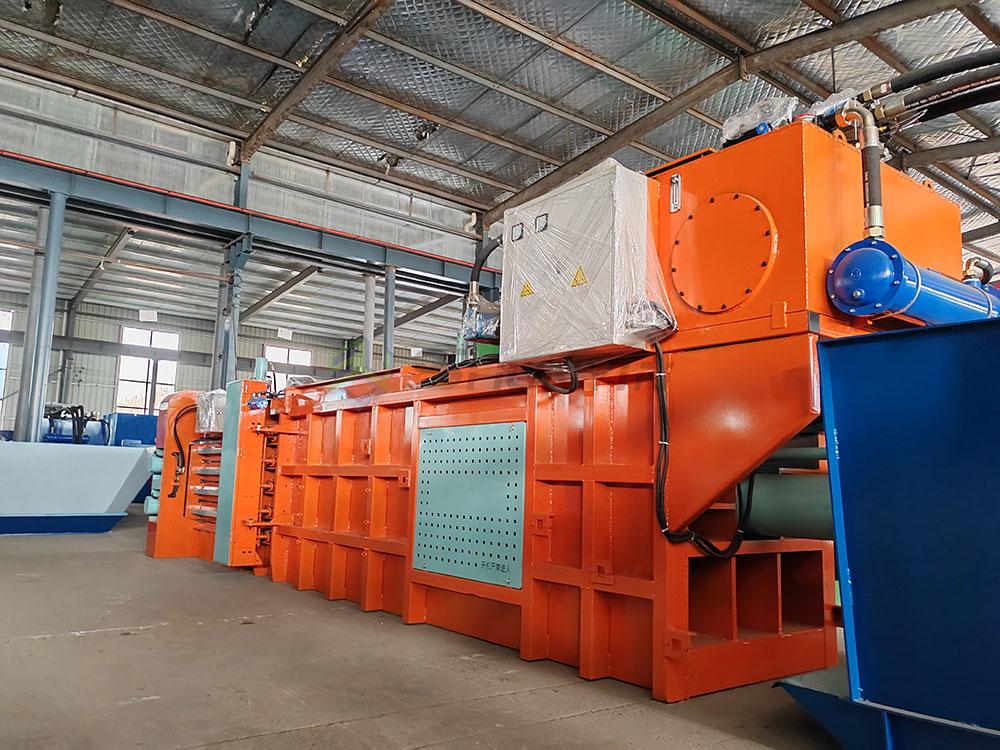
Bailer vs. Baler: Key Differences
| Feature | Bailer | Baler |
|---|---|---|
| Function | Used for gathering loose materials (e.g., hay) | Compresses waste into bales for easier storage and transport |
| Use | Agricultural | Waste management, recycling |
| Design | Smaller, manual | Larger, automated |
In waste management, the term "baler" is the correct term, and it’s used for machines that process materials like cardboard, paper, plastics, and metals.
How much pressure does a cardboard baler have?
The pressure exerted by a cardboard baler can vary depending on the type of baler and its capacity. Most balers use hydraulic systems to apply pressure, with horizontal balers generally offering more powerful compression capabilities than vertical models.
Cardboard balers typically generate hydraulic pressure ranging from 20 tons to over 100 tons, depending on the machine’s size and intended use.
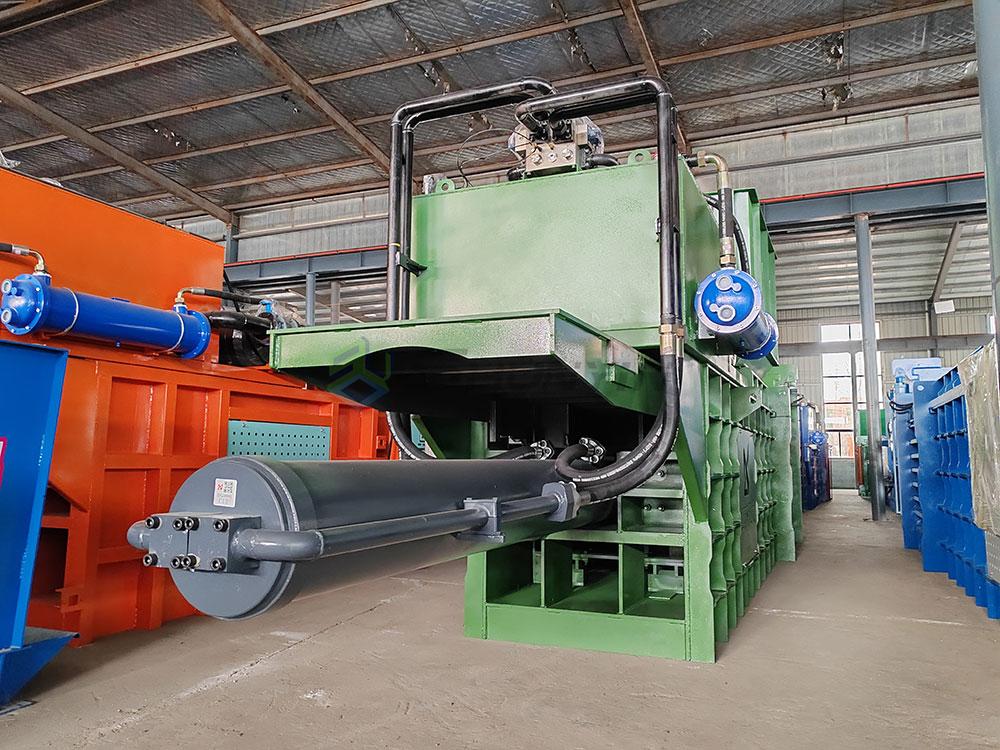
Hydraulic Pressure and Baler Performance
- Lower Pressure – Small-scale balers, like vertical balers, may exert lower pressure (20-30 tons), suitable for handling small to medium volumes of cardboard.
- Higher Pressure – High-capacity horizontal balers often exert higher pressure (60-100 tons) to handle large volumes of waste materials with ease.
| Baler Type | Pressure Range | Best Suited For |
|---|---|---|
| Vertical Baler | 20 – 30 tons | Small to medium businesses |
| Horizontal Baler | 60 – 100 tons | High-volume, industrial operations |
Higher pressure balers are more efficient for compressing large quantities of cardboard, making them ideal for large-scale businesses that generate significant amounts of waste.
Conclusion
Cardboard balers are essential tools for waste management, and choosing the right one can improve efficiency and save costs. With a variety of manufacturers and models available, it’s important to consider factors such as price, capacity, and hydraulic pressure when making your decision. Investing in a high-quality baler can optimize your business’s waste processing and contribute to a more sustainable future.


